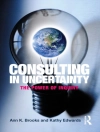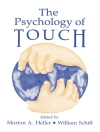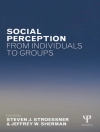The Science of Compassionate Love is an interdisciplinary
volume that presents cutting-edge scholarship on the topics of
altruism and compassionate love. The book
* Adopts a social science approach to understanding compassionate
love
* Emphasizes positive features of social interaction
* Encourages the appropriate expression of compassionate love
both to those in intimate relationships and to strangers
* Includes articles by distinguished contributors from the fields
of Psychology, Sociology, Communication Studies, Family Studies,
Epidemiology, Medicine and Nursing
* Is ideal for workshops on compassionate love, Positive
Psychology, and creating constructive interactions between health
professionals and patients
Cuprins
Preface and Acknowledgments: Beverley Fehr (University of
Winnipeg), Susan Sprecher (Illinois State University), and Lynn
Underwood (Hiram College).
Part I: Definitions, Theory, and Measurement.
1. Compassionate Love: A Framework for Research: Lynn G.
Underwood (Hiram College).
2. Compassionate Love: Conceptual, Measurement, and Relational
Issues: Beverley Fehr (University of Winnipeg) and Susan Sprecher
(Illinois State University).
3. Measuring Prosocial Behavior, Altruism, and Compassionate
Love on US Television: Stacy L. Smith (University of Southern
California), Sandi W. Smith (Michigan State University), Katherine
M. Pieper (University of Southern California), Edward Downs (Penn
State University), Jina H. Yoo (University of Missouri St. Louis),
Becka Bowden (Michigan Bankers Association), Amber Ferris (Kent
State University), and Matthew C. Butler (Office of Health and
Human Services, State of Michigan).
Part II: The Sociodemographics of Compassionate Love.
4. Love and Caring in the United States: Trends and Correlates
of Empathy, Altruism, and Related Constructs: Tom W. Smith
(University of Chicago).
5. Compassionate Motivation and Compassionate Acts across the
Adult Life Course: Evidence from US National Studies: Nadine F.
Marks (University of Wisconsin-Madison) and Jieun Song (University
of Wisconsin-Madison).
Part III: Compassionate Love in Close Relationships.
6. Empathy and Compassionate Love in Early Childhood:
Development and Family Influence: Brenda L. Volling, Amy M. Kolak,
and Denise E. Kennedy (all University of Michigan).
7. Compassionate Love in Early Marriage: Lisa A. Neff
(University of Toledo) and Benjamin R. Karney (University of
California, Los Angeles).
Part IV: Compassionate Love for Non-Close Others.
8. A Behavioral Systems Perspective on Compassionate Love: Mario
Mikulincer (Interdisciplinary Center Herzliya), Phillip R. Shaver
(University of California, Davis), and Omri Gillath (University of
Kansas).
9. Compassionate Acts: Motivations for and Correlates of
Volunteerism among Older Adults: Allen M. Omoto (Claremont Graduate
University), Anna M. Malsch (Portland State University), and Jorge
A. Barraza (Claremont Graduate University).
10. Compassionate Love for Individuals in Other Social Groups:
Salena Brody (Collin County Community College), Stephen C. Wright
(Simon Fraser University), Arthur Aron (State University of New
York at Stony Brook), and Tracy Mc Laughlin-Volpe (Boston
College).
Part V: Compassionate Love in Health Care and Other
Caregiving Contexts.
11. Compassionate Family Caregiving in the Light and Shadow of
Death: Linda J. Roberts, Meg Wise, and Lori L. Du Benske (all
University of Wisconsin-Madison).
12. Compassionate Clinicians: Exemplary Care in Hospital
Settings: David R. Graber (Medical University of South Carolina)
and Maralynne D. Mitcham (College of Health Professions).
13. Caregiving in Sociocultural Context: Norman D. Giesbrecht
(University of Calgary).
Part VI: Compassionate Love in an Intercultural
Context.
14. Testing Aspects of Compassionate Love in a Sample of
Indonesian Adolescents: Julie Vaughan, Nancy Eisenberg (both
Arizona State University), Doran C. French (Illinois Wesleyan
University), Urip Purwono (Universitas Padjadjaran), Telie A.
Suryanti (associate consultant), and Sri Pidada (deceased).
Part VII: Commentary.
15. Compassionate Love: Concluding Reflections: Daniel Perlman
(University of North Carolina at Greensboro) and Rozzana
Sánchez Aragón (National Autonomous University of
Mexico).
Index
Despre autor
Beverley Fehr is Professor of Psychology at the University
of Winnipeg.
Susan Sprecher is Professor of Sociology with Joint
Appointment in Psychology at Illinois State University.
Lynn G. Underwood is Professor of Biomedical Humanities
at Hiram College.












